The Epic Legacy of Mass Effect: From Shepard's Saga to the Future
Mass Effect is a groundbreaking sci-fi RPG series by BioWare, renowned for its rich narrative, immersive universe, and player-driven choices. This in-depth exploration traces the evolution of the franchise, from the iconic original trilogy and its remastered Legendary Edition to the ambitious Andromeda spin-off and the much-anticipated next chapter. Discover how Mass Effect has shaped gaming history and what lies ahead for the beloved saga.
Mass Effect is a legendary sci-fi RPG series from Canadian studio BioWare, celebrated for its deep storytelling, intricately crafted universe, and signature choice-driven gameplay that shapes the narrative. The saga began with the iconic original trilogy centered on Commander Shepard, followed by the remastered Mass Effect: Legendary Edition and the spin-off Mass Effect: Andromeda. Today, fans eagerly anticipate the next chapter in the beloved franchise.
Mass Effect (2007): The Trilogy Begins
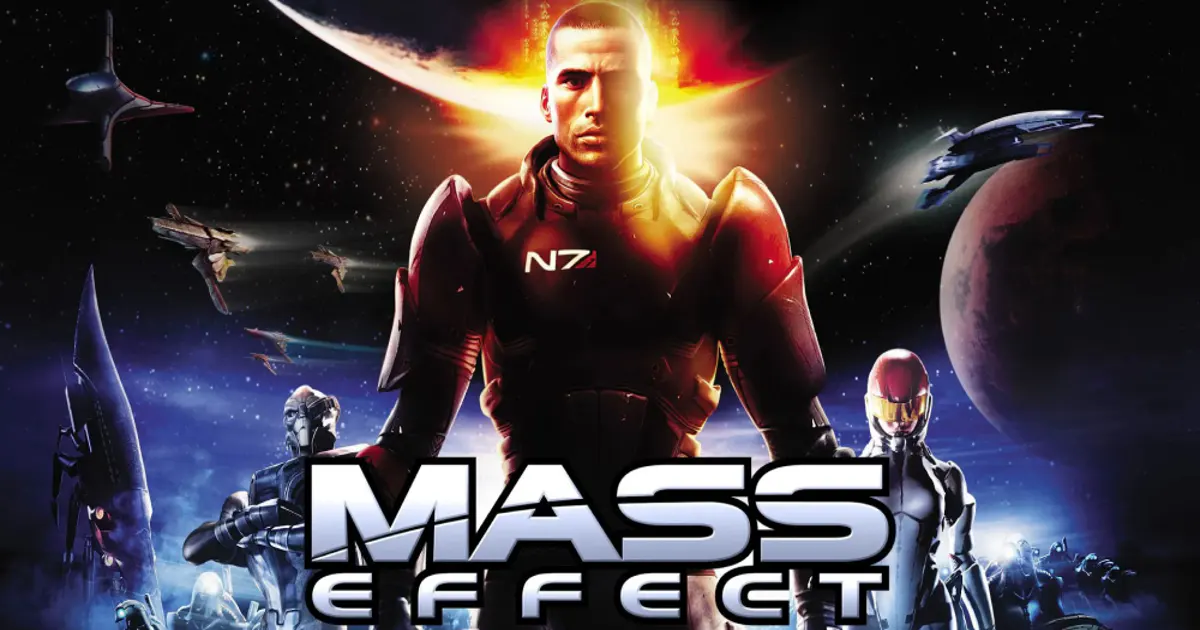
The first Mass Effect launched in 2007 as an Xbox 360 exclusive (later reaching PC and PS3). Building on BioWare's previous success with Knights of the Old Republic, the studio set out to create an original space opera universe. Microsoft, aiming to boost Xbox 360's appeal, commissioned BioWare to develop a cinematic, narrative-driven RPG. The result was Mass Effect, blending third-person shooter combat with rich role-playing elements.
The game unfolds in the 22nd century, where humanity has discovered faster-than-light travel (the titular "mass effect") and joined a galactic community. Players step into the role of Commander Shepard, the first human Spectre, leading a diverse crew of humans and aliens aboard the SSV Normandy. Their mission: unravel the conspiracy of the rogue agent Saren and combat the ancient machine race known as the Reapers, threatening all organic life. Mass Effect stood out with its dynamic combat (featuring biotic and tech powers), planetary exploration via the MAKO vehicle, and an ambitious dialogue system that shaped character relationships and story outcomes.
Upon release, Mass Effect became a commercial hit, boosting Xbox 360 sales and amassing a devoted fanbase. Critics praised its compelling narrative, complex characters, and visuals. Some gameplay aspects, like the inventory system and MAKO controls, received mixed reactions, but these minor flaws didn't stop the game from laying the groundwork for one of the most celebrated RPG franchises. BioWare cemented its reputation as a master of sci-fi RPGs, paving the way for Shepard's saga to continue.
Mass Effect 2 (2010): Raising the Bar
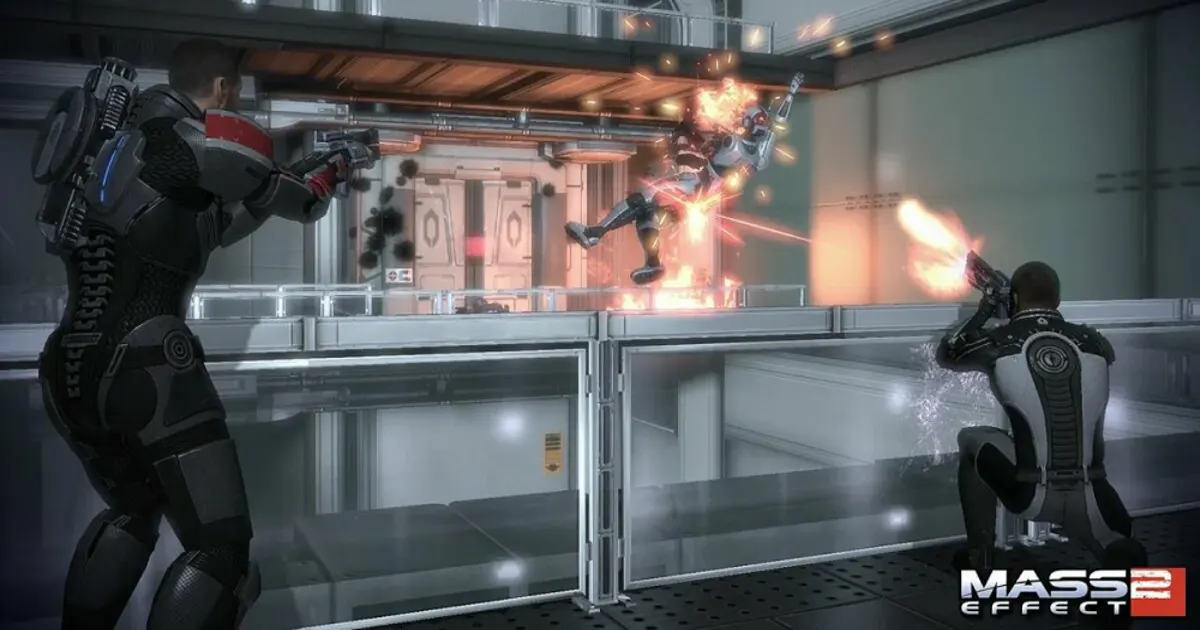
Mass Effect 2 debuted in January 2010 for PC and Xbox 360 (with a PS3 release a year later), significantly expanding on the original's concepts. Designed as a trilogy from the start, BioWare began work on the sequel immediately after the first game's success. A standout feature was the ability to import saved games, allowing players' choices to carry over and shape the world, story, and fate of characters in the new installment-personalizing the journey for each player.
The gameplay shifted toward a more action-oriented style: combat felt faster and smoother, while RPG elements were streamlined for cinematic pacing and balance. Controversial mechanics from the first game, like lengthy MAKO trips and cumbersome inventory, were removed in favor of focused missions and deeper companion arcs. Shepard's squad expanded with many new characters, each with their own loyalty missions that deepened backstories and relationships, directly impacting the game's climactic "suicide mission." The darker story sees Shepard teaming up with the shadowy Cerberus organization to face a new threat-the Collectors. Players must earn their crew's trust and navigate high stakes, where every decision can mean life or death.
Mass Effect 2 received universal acclaim and is often cited as one of its generation's best games. Its gripping story, charismatic cast, and polished gameplay earned it numerous awards, including "RPG of the Year" and "Game of the Year" from various outlets. The sequel not only surpassed its predecessor commercially but also set the stage for the trilogy's epic conclusion.
Mass Effect 3 (2012): The Trilogy Concludes
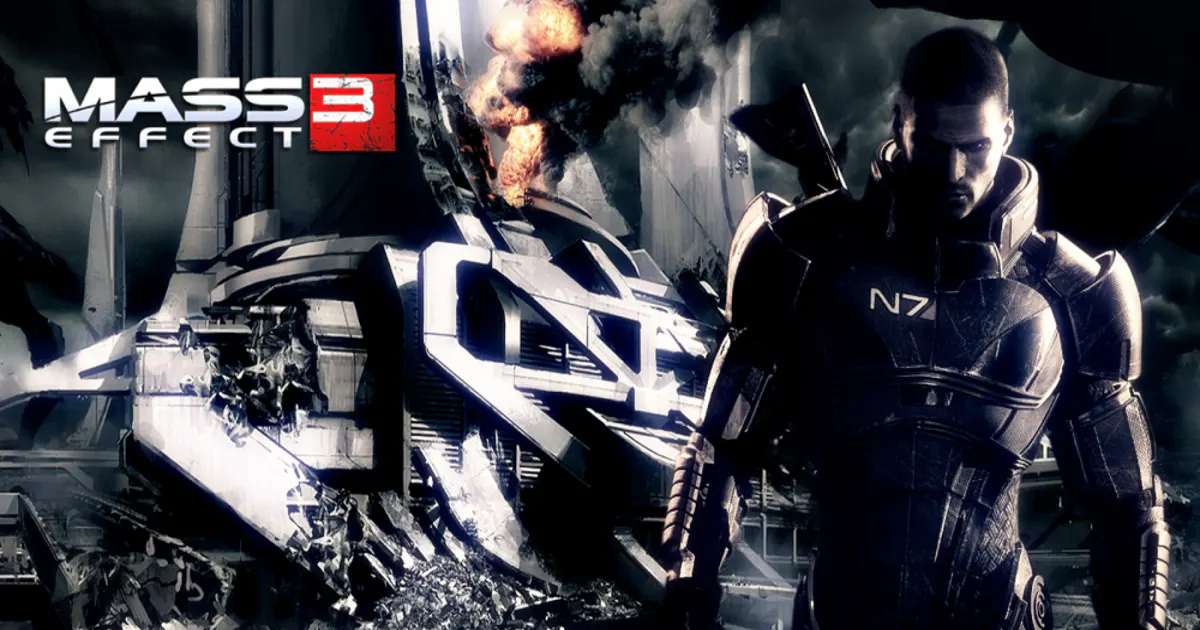
The climactic Mass Effect 3 arrived in March 2012 on PC, Xbox 360, and PlayStation 3, serving as a direct sequel to ME2 and the final chapter in Shepard's fight against the Reapers. From the outset, players are thrust into a galaxy-wide war as the ancient Reapers launch a full-scale invasion, annihilating civilizations. Shepard must unite the galaxy's races, amass a formidable fleet, and find a way to break the cycle of extinction.
Gameplay refinements made combat more dynamic, introducing new abilities, weapons, and for the first time, cooperative multiplayer via the "Galaxy at War" mode. Here, players could team up to repel enemy waves, affecting the single-player campaign's war readiness. Importing previous saves continued to influence scenes and available allies, with many returning characters joining Shepard for the final assault. The story culminates in a dramatic assault on Earth's relay and a crucial choice that determines the fate of the galaxy.
Mass Effect 3 was lauded for its gameplay improvements, epic scale, and emotional depth. However, the original ending sparked controversy among fans, who criticized its lack of variation and failure to reflect prior choices. The backlash was so intense that BioWare released a free "Extended Cut" DLC, expanding the epilogue and clarifying outcomes. While debates over the finale persisted, Mass Effect 3 brought the trilogy to a close, tying up storylines and earning numerous "Game of the Year" and "Best RPG" awards in 2012-securing the trilogy's status as a landmark in gaming history.
Mass Effect: Legendary Edition (2021): A Modern Revival
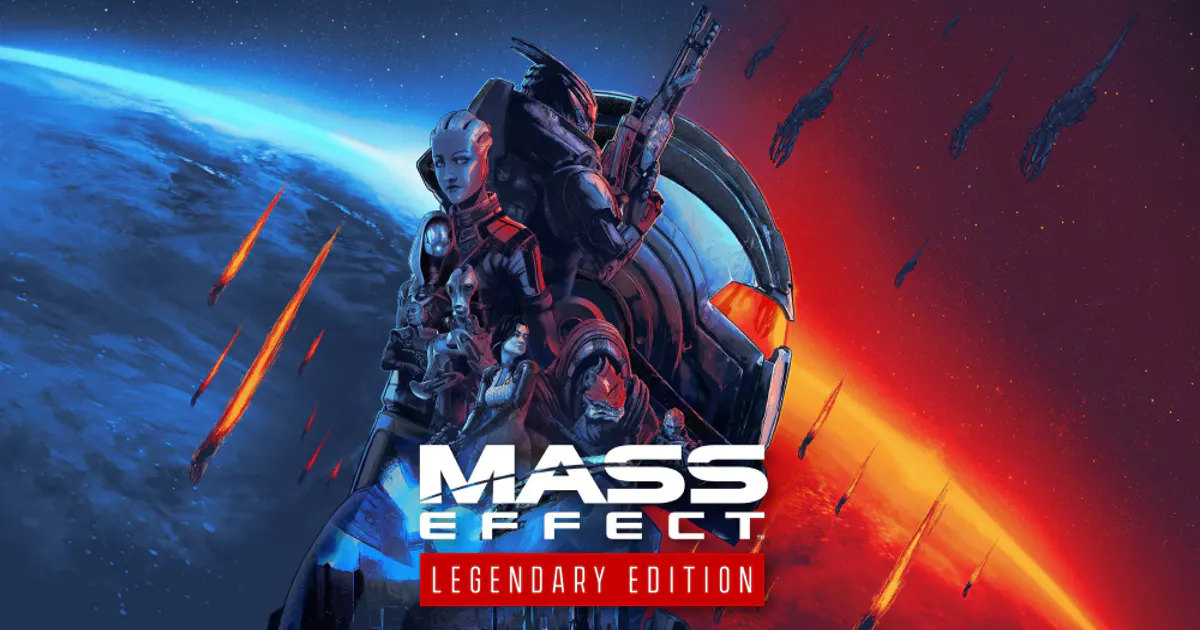
In May 2021, BioWare delighted fans with the release of Mass Effect: Legendary Edition, a remaster of the iconic trilogy for modern platforms. This collection included Mass Effect, Mass Effect 2, and Mass Effect 3 with all major story DLCs, allowing both newcomers and long-time fans to experience Shepard's saga on current hardware. All three games received significant graphical upgrades-4K resolution, HDR, improved textures, lighting, visual effects, and a unified interface. The most dramatic changes were made to the first game, with overhauled combat (bringing shooting and controls closer to the sequels), improved camera behavior, and much friendlier MAKO handling. These updates made the oldest title more accessible for new players.
Importantly, Legendary Edition is a faithful remaster, not a full remake. BioWare preserved the original story, level design, and atmosphere while modernizing the technical aspects. As creative director Casey Hudson noted, the goal was to "enhance the experience so both veteran fans and new players can enjoy the classics at their best." Developed by BioWare with support from Abstraction and Blind Squirrel Games, the remaster was warmly received-fans loved revisiting the saga in comfort, and critics praised its respectful treatment of the source material. With this release, the Mass Effect trilogy solidified its place as a true gaming classic, remaining relevant for new generations.
Mass Effect: Andromeda (2017): A New Galaxy, New Heroes
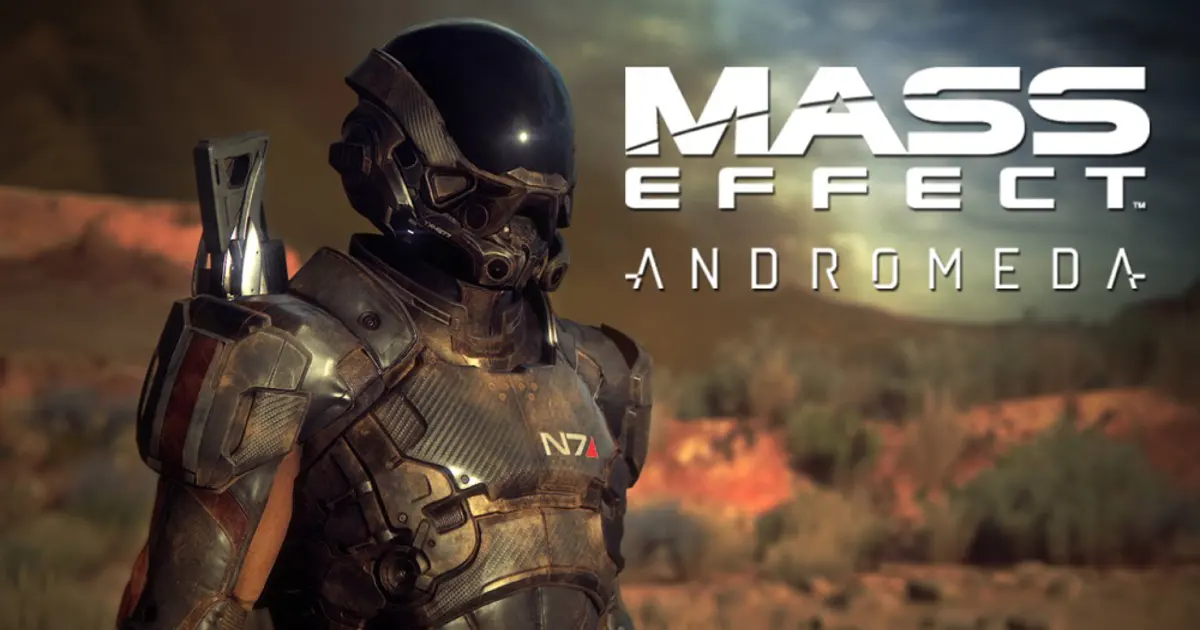
After concluding Shepard's story, BioWare expanded the Mass Effect universe beyond the Milky Way with the spin-off Mass Effect: Andromeda, released in March 2017. Set over 600 years after the original trilogy, the game follows the "Andromeda Initiative" as several massive arks-each carrying different species-leave the Milky Way to establish colonies in the Andromeda galaxy. Players assume the role of Ryder, the child of the expedition's fallen leader, tasked with becoming the new Pathfinder. The mission: explore uncharted worlds, secure humanity's future, and confront unexpected threats in a hostile new galaxy.
Upon arrival, things quickly go awry: missing arks, uninhabitable target planets, internal strife among colonists, and the looming danger of the mysterious Scourge and the hostile Kett race. The story weaves themes of exploration and survival as players investigate ancient Remnant technology, battle new foes, and address the political challenges of the fledgling colonies.
Andromeda introduced notable gameplay changes. Instead of the trilogy's linear progression, the game offered large, open-world planetary zones to explore using the new Nomad vehicle. Emphasis returned to exploration-players scan environments, gather resources, craft gear, and build outposts. Combat grew more dynamic thanks to the addition of a jetpack, enabling quick jumps and evasive maneuvers. The rigid class system was replaced by flexible "profiles," letting players mix and match abilities without being locked into one role. Dialogue choices and the potential for relationships with a new cast of companions remained core to the experience.
Unfortunately, Andromeda was plagued by development troubles and a mixed reception. The project suffered from shifting leadership, concept changes, and technical hurdles with the Frostbite engine. At launch, the game was marred by bugs and awkward facial animations, quickly becoming fodder for internet memes. Critics found the story derivative and lacking originality, despite some interesting ideas. On Metacritic, the PS4 version scored around 70/100-significantly lower than previous BioWare titles. While some praised the combat and world design, overall the game was seen as a disappointment compared to the acclaimed trilogy. Plans for story DLC were canceled, and the franchise entered a lengthy hiatus. In hindsight, Andromeda is viewed as an ambitious but flawed experiment that nearly derailed the series.
The Next Mass Effect: Announcement and the Future
To the delight of fans, BioWare isn't finished with the Mass Effect universe. In November 2020 (during the annual "N7 Day"), the studio officially announced development of a new entry. At The Game Awards 2020, a brief teaser trailer featured Liara T'Soni, a key character from the original trilogy, accompanied by the tagline "Mass Effect will continue"-a clear hint that the main story would go on.
Since then, BioWare has released only sparse details, fueling speculation with cryptic clues. On "N7 Day 2023," the developers shared an audio teaser featuring a distress signal from Andromeda, sparking theories that the next game might unite the storylines of both the original trilogy and Andromeda. The teasers also referenced the year 2819-likely the timeframe for the upcoming game (for comparison, Shepard's trilogy occurs in 2183-2186, while Andromeda's colonists arrive around 2819). Such hints suggest the new installment may bridge the two eras, tying together their legacies.
There is no official title or release date yet. The project, led by series producer Mike Gamble, remains in early development as of 2025. BioWare is first focused on finishing its next Dragon Age game before shifting resources to Mass Effect. Given the scale, fans will likely be waiting several years; developers have described it as a "long wait." Nevertheless, confirmation of a new Mass Effect has reignited optimism in the community. After the missteps of Andromeda, BioWare aims to restore the franchise's former glory and meet players' expectations. Only concept art and teasers have been shown so far, but they've already sparked heated discussions-about returning characters, new settings, and the future of the saga. One thing is certain: Mass Effect will continue, and BioWare is determined to learn from the past and deliver another thrilling chapter in its cherished universe. For now, players can only watch for news and, as the series motto says, "let my fate find me."